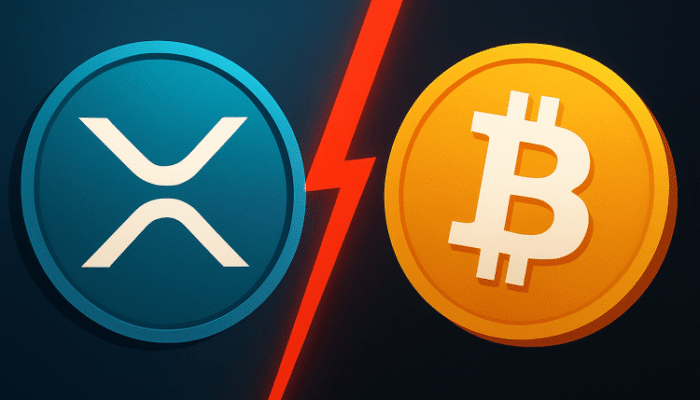Last week, Canadian prime minister Mark Carney declared that the “old relationship” his country had with the United States was “over,” and it’s “clear the US is no longer a reliable partner.” Carney’s comments came after the US announced sweeping new tariffs on Canada and President Donald Trump spent months making inflammatory comments that have alarmed Canada’s leaders, including suggestions that the country would be “better off” if it was annexed by the US. Tensions finally boiled over last Wednesday when Trump said he will impose 25 percent tariffs on foreign-made cars, a move that could have a major negative economic impact on Canada—once one of America’s staunchest allies.
Among Canadians in Silicon Valley, the rift between the two nations is sparking a new kind of national pride, as well as a lot of uncertainty. For now, at least, Trump’s tariffs on Canada don’t extend to software, so the flow of digital goods and services between the two countries remains mostly uninterrupted. But the chaos has prompted some prominent founders and investors to urge young Canadians to build companies at home and strengthen the local tech ecosystem, while Canadian tech companies with large operations in the US are wondering if they need to change strategies, or even headquarters.
“I think the biggest thing happening right now is that Canadian founders are having to adjust to a new reality in which two fundamental assumptions we’ve taken for granted for decades can no longer be counted on,” says Chris Neumann, a Vancouver-based partner at Panache Ventures and former startup founder. “Namely, that the US is a reliable trading partner and that the US and Canada have a stable, mutually beneficial free-trade agreement.”
At the same time, some Canadians tell WIRED that the social and financial capital of Silicon Valley remain huge draws for tech workers. Many ambitious entrepreneurs would still jump at the chance to join the Y Combinator tech accelerator in the US, for example, “whether they’re coming from Canada or coming from Argentina,” says Michael Buhr, the executive director of C100, a nonprofit networking group for Canadians in Silicon Valley.
“I like to joke that you can’t put a tariff on talent,” Brandon Waselnuk, an executive at the documentation app Mintlify, said at an event in California last week.
Waselnuk is originally from Ottawa but now lives and works in San Francisco. Back in January, he put out a call on social media to find other Canadians in tech who, like him, might be feeling unsettled by rising tensions between the US and their home country. A number of Canadians got in touch, and Waselnuk began organizing local events for what he dubbed the “Maple Syrup Gang.” The first outing was a city rucking and chocolate tasting excursion co-led by his wife.
Waselnuk hosted last week’s gathering at the sleek offices of Bain Capital in downtown San Francisco. Around 60 entrepreneurs and venture capitalists from Canada gathered to watch startup demos while noshing on pizza and poutine. Greeting people near the entrance, Waselnuk appeared quintessentially Canadian, both in terms of affability and attire. He wore a hat emblazoned with what he explained was the logo for Trans Canada Trail. His red maple-leaf T-shirt, however, required no explaining.
“Some of the Canadians in the group have been asking, ‘Should we relocate our office? Should we change our approach?’” Waselnuk said. “But we don’t really know what’s going to happen. If anything, America doesn’t know either. Canadians don’t want these problems. We just want to get along.”
Alysaa Co, a principal at Bain Capital Ventures and fellow Canadian, agreed. She noted that one of Bain’s portfolio companies, a Toronto-based fintech startup, has been serving US-based small businesses since its inception. Ideally, Co said, the startup won’t have to rethink that strategy.
Some in the Maple Syrup Gang poked fun at the US and American culture. One entrepreneur, who showed off an AI-powered tool for helping kids learn math, asked the crowd to roast him and provide brutally honest feedback on his app. “Pretend like you’re from Texas. Or pretend you’re Trump,” he said.
Canadian pride and nationalist sentiment have been on the rise since Trump began threatening America’s northern neighbor and took a hard line on trade. The percentage of Canadians who say they’re “very proud” of their country jumped significantly in February from just a couple months prior, according to data analysis from the Angus Reid Institute, a Canadian nonprofit research organization. As Canada gears up for national elections in a few weeks, the two major political parties are emphasizing the importance of “Canada First” and defending national sovereignty. Carney’s Liberal Party, which was sinking in the polls before Trump’s rhetoric toward Canada turned dark, has seen its popularity surge as the prime minister, a former banker, positioned himself as the best candidate to protect Canada’s economy.
This growing sense of Canadian national pride has trickled into the tech sector, too, where some investors and startup founders view the divisiveness between the US and Canada as an opportunity to boost their country’s productivity and self-reliance. A group of Canadian tech entrepreneurs, including executives from Shopify and Cohere, recently spun up a promotional campaign called Build Canada with the goal of influencing policy on technology, tax reform, and immigration. An article in the Canadian blog Betakit reported that these tech leaders have been “frustrated by the Liberal government and the country’s long-standing productivity woes.”
“In hindsight we will look at these US tariffs as an important wake-up call for [Canada],” Boris Wertz, founder of Vancouver-based Version One ventures and a former board partner at Andreessen Horowitz, said on X in early February. Canada should diversify its international trading partners away from the US, deregulate inter-provincial trade, and double down on energy infrastructure, Wertz wrote. He also included “border security/tough on crime” as an agenda item.
Canada has been a significant source of tech talent in Silicon Valley since the North American Free Trade Agreement was put in place in 1994, which included a program granting an unlimited number of visas for skilled professionals looking to move from Canada or Mexico to the US. (NAFTA was replaced by the United States-Mexico-Canada agreement, or USMCA, in 2020.) Canadians who work in tech can quickly rattle off the names of unicorn founders and other notable figures who are originally from their home country, including Uber cofounder Garrett Camp, Notion cofounder Ivan Zhao, Cloudflare cofounder Michelle Zatlyn, and Pebble creator Eric Migicovsky—not to mention the thousands of Canadian engineers who toil away on products behind the scenes.
But Canadians have also lamented the brain drain to the Valley and the lost opportunities it represents for Canada’s growth. Amid the current artificial intelligence boom that has prompted another wave of talented engineers to flock to the US, Canada’s governments and industry leaders “should be addressing this problem with the urgency of a five-alarm fire,” software developer Bilal Akhtar argued in an op-ed in the Toronto Star last year.
“Some of the most notable academicians in the fields of AI and machine learning, such as Geoffrey Hinton and Ilya Sutskever, hail from the University of Toronto,” Akhtar wrote. “We’ve just failed to build a big enough ecosystem around any of that.”
Canada’s talent bleed may be stanched slightly by rising tensions with the US, which have created, in some cases, literal barriers to entry that were once unimaginable between friendly neighbors. Security concerns about traveling across the southern border increased in Canada after the story of a Canadian woman who was detained for two weeks by US immigration authorities went viral earlier this month. Flight bookings to the US during the upcoming summer travel season have plummeted.
One Canadian attendee at the Maple Syrup Gang event told WIRED he’s currently interning at an American electric car company and had never been to the United States before taking the gig. He now wants to stay and find a full-time job in Silicon Valley, but his father already told him he wouldn’t visit him if he remained in the US.
Buhr, who runs the C100 networking group for Canadians in Silicon Valley, says there are critical cultural differences between the two tech ecosystems that have hindered Canada. The country has “one unicorn a decade, and the US has 10 unicorns a year,” Buhr says, citing ecommerce platform Shopify as Canada’s current shining tech star. (Almost everyone cites Shopify as Canada’s shining tech star.)
He pointed to Silicon Valley’s well-known flywheel effect, where if a tech worker is extremely successful and becomes wealthy, they’ll invest money back into the ecosystem and create new opportunities for others. “That flywheel does not exist in Canada, and if it does, it’s on a 10-year cycle,” he says.
Buhr adds that he wants to help his fellow Canadians increase their appetite for risk. “We need to raise the hubris of Canadian entrepreneurs a little bit, and be more American in that sense, so that they’re saying ‘I can change the world,’ and not, ‘I can buy a cottage a year from now.’” As the relationship between the US and Canada goes through a radical transformation, the world those entrepreneurs are seeking to change could soon look very different.



